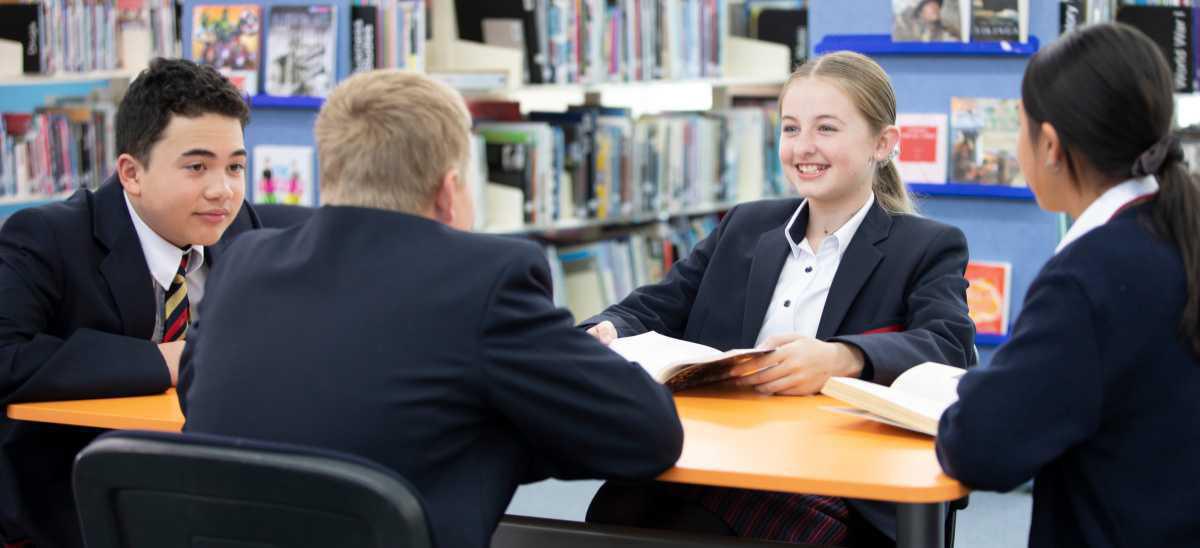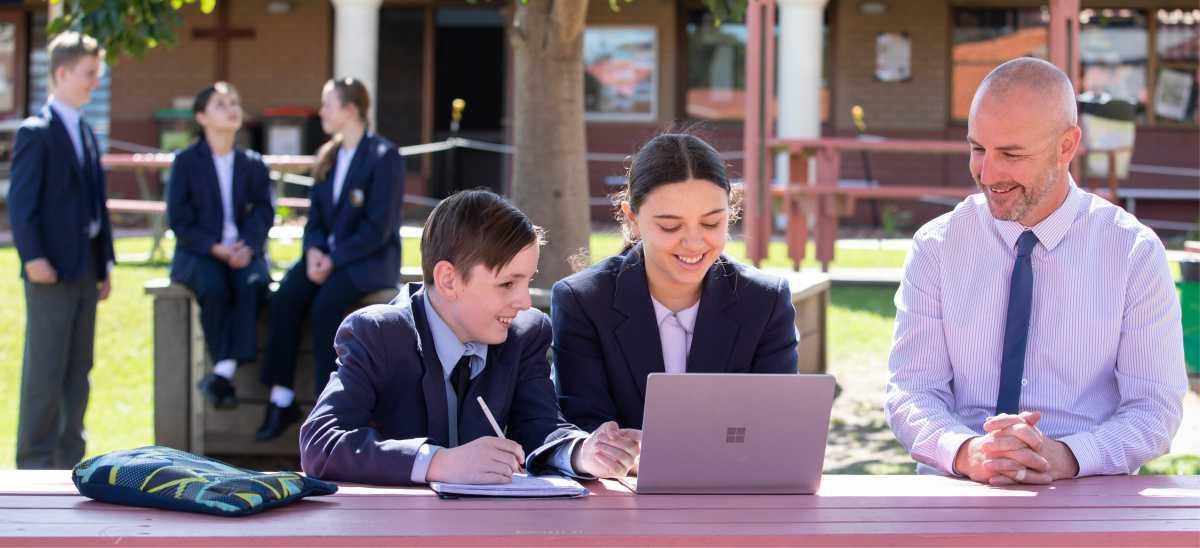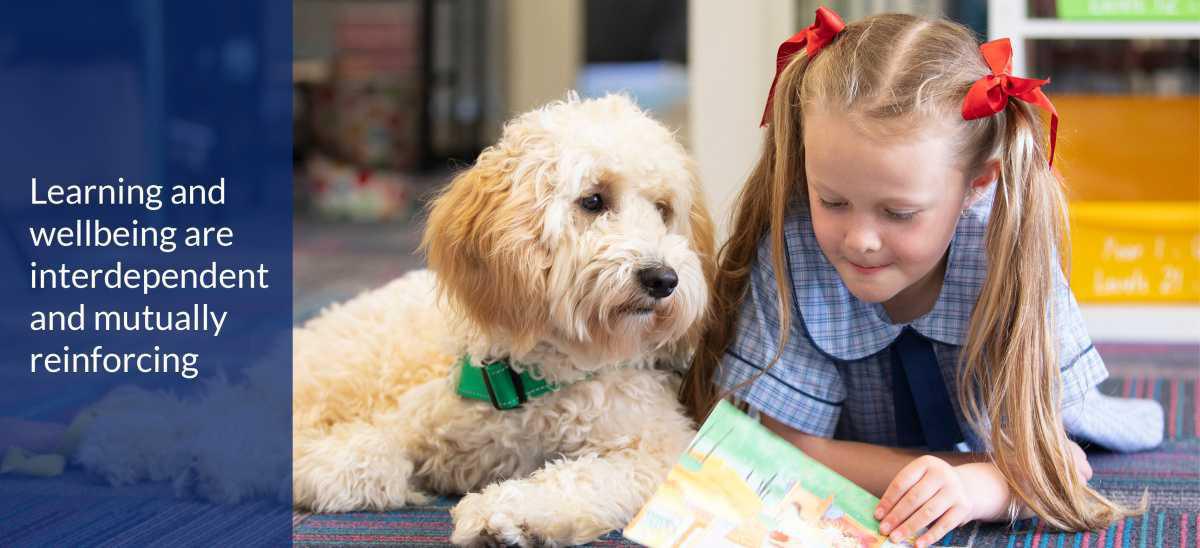The aim of this focus area is to ensure the holistic growth of students is optimised by taking an integrated approach to learning and wellbeing, including proactively supporting students to build resilience, confidence and self-efficacy.
Providing the opportunity for every student to realise their learning potential—while ensuring they are safe, well and growing in their faith—is at the centre of our mission.
Amidst a societal rise in mental health issues in young people, students have told us their greatest concerns relate to doing well at school, their mental health and wellbeing, and coping with stress. At the same time, having opportunities to achieve their learning potential and be challenged academically in a Catholic environment are what the majority value most about their education.
We know these two areas cannot be addressed in isolation. Learning and wellbeing are interdependent and mutually reinforcing. A sense of safety and engagement with learning leads to growth and achievement, which in turn nurtures and improves students’ wellbeing and self-efficacy.
Through shared language and a common framework for understanding and addressing wellbeing and its interconnectedness with learning, we will bring about a comprehensive approach to the development of crucial skills and competencies that integrate learning and wellbeing.
We will continue to prioritise the teaching of literacy and numeracy skills that provide the necessary foundation for developmentally appropriate communication, critical thinking, creativity and problem-solving skills that enable deep learning and wellbeing.
And by taking a proactive approach to building student resilience, confidence and self-efficacy—informed by contemporary evidence-based practice and our rich Catholic tradition—we will equip students to be engaged and successful lifelong learners with the personal and social capabilities required to sustain their health and wellbeing.
Improvement indicators
Progress against this focus area will be measured by:
- Attendance rate and level
- Student engagement
- Growth and proficiency in literacy and numeracy
- Gain and achievement in the HSC
Achieving our aim
To drive improvement in this focus area, we will:
- Strengthen child safe cultures in schools through a strategic approach to preventing, recognising and responding to child safe concerns to ensure we meet and exceed our obligations under the NSW Child Safe Scheme.
- Maintain a priority focus on effective literacy and numeracy teaching and quality assessment practices.
- Design and implement an integrated approach to fostering deep learning and wellbeing that combines evidence-based instructional practices and engaging, student-centred pedagogies.
- Emphasise an early and proactive approach to building student resilience and self-efficacy and responding to student needs.
- Enhance teacher capability in the area of social and emotional learning.
- Support collective teacher efficacy with a focus on effective assessment and authentic use of data to drive responsive teaching and differentiation.
- Improve collaboration structures and processes within and between schools, providers and families to ensure a holistic learning and wellbeing experience for students.




